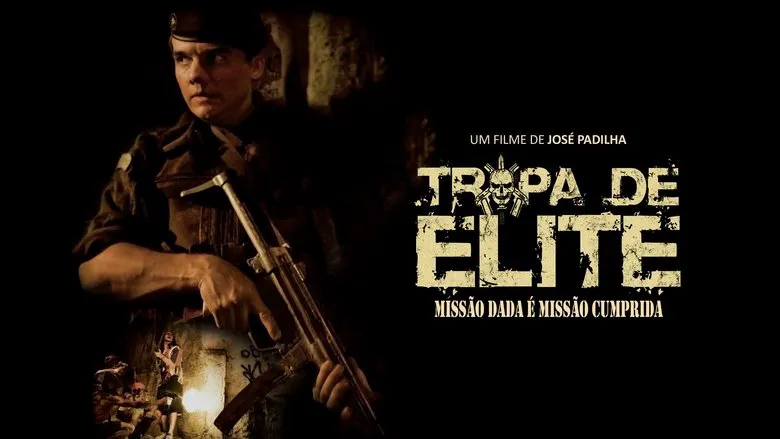Diving Deep into Brazilian Crime: An Expansion of “Elite Squad 2”
While cinematic portrayals of Brazilian crime, such as “City of God” and “Elite Squad,” grab our attention with their intense and visceral narratives, they sometimes feel like isolated snapshots. “Elite Squad 2” transcends this limitation, building upon the foundation of its predecessor to offer a more profound and intricately woven story.
This sequel bears a striking resemblance to the “Election” series from Hong Kong, a high point in gangster films. The parallel lies not only in their structure as duologies but also in their thematic similarities. The initial films lay the groundwork by exploring the complexities of social structures. “Elite Squad” dissects the stark contrast between the Brazilian police and criminal underworld, whereas “Election” explores the dynamic shifts between Hong Kong triads and law enforcement in the post-handover era.
Parallels Between “Elite Squad 2” and “Election 2”
Both second installments follow roughly the same path. “Election 2” incorporates officers from mainland China who center on the Hong Kong triads’ adaptation after the handover. However, it implicitly touches on societal changes and the growing struggles of Hong Kong in its shift away from the British colonial system.
“Elite Squad 2” mirrors this expansion by revealing the workings of the state government and the legislative bodies behind the police force. It deconstructs the assumed police versus criminals dichotomy by exploring complex political tactics that influence elections and drive power dynamics.
The ambitious themes explored in these films likely pose a challenge for a series of third movies.
“Elite Squad”: From Streets to System
The Evolution of Key Characters
In “Elite Squad,” Captain Nascimento, the ruthless leader of BOPE (a special operations unit), searches for a suitable successor. He identifies Neto and Matias as promising candidates. Matias’s death at the hands of drug dealers fuels Neto’s decision to abandon his legal career and seek vengeance by joining BOPE.
In “Elite Squad 2,” Neto has evolved into a seasoned BOPE captain, while Nascimento is promoted to operations commander. During a violent prison riot instigated by drug traffickers, Nascimento and Neto exploit a human rights advocate’s innocence to earn their trust for criminals, the intention of eliminating them shortly after.
The Price of Justice
This action ignites a firestorm with the human rights advocate, also a university professor and Nascimento’s ex-wife’s husband, he uses the media to denounce Nascimento and BOPE.
The Shifting Sands of Power
The media pivots its portrayal of the slain drug dealers as victims, highlighting human rights concerns and calling for BOPE’s punishment.
With elections on the horizon, Nascimento–a divisive figure––is reassigned to a desk job, and Neto faces demotion.
Understanding the political landscape, Nascimento advocates for a gradual approach, Neto attempts to expose the corruption though the media , driving a wedge between them and preying to the politician’s divisive tactics.
A New Breed of Evil
As focus shifts away form BOPE’s tactics, a sinister power shifts. Corrupt police seize control of the drug trade and expand their operations.
Nascimento realizes his previous work inadvertently fostered a worse predicament. While the human rights advocate who once hailed him now attacks him in a new stance.
To consolidate their place, corrupt officers need the elimination of rival dug games for consolidation of new leadership
Betrayal and Conspiracy
Using falsified intelligence, the corrupt officers lead Neto into a fatal trap. Nascimento, now in the security bureau, detects this scheme.
However, Neto pushes onward, but quickly discover the truth.
The Price of Truth
The journalist who uncovers key evidence is silenced. The deaths of Neto and the journalist unite Nascimento and the human rights advocate, creating collaborations.
Although corrupt officers are brought to court, the extortion persists. The ending shot is in the image of The Brazilian flag, the director questions the the location of who their enemy truly is.